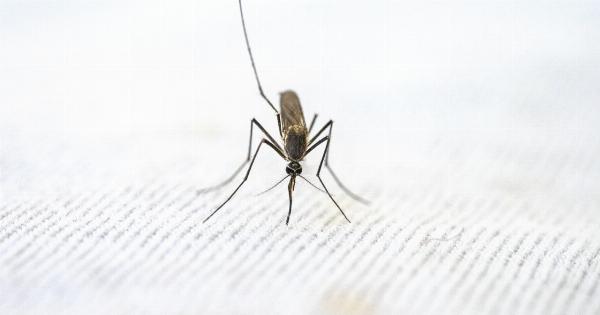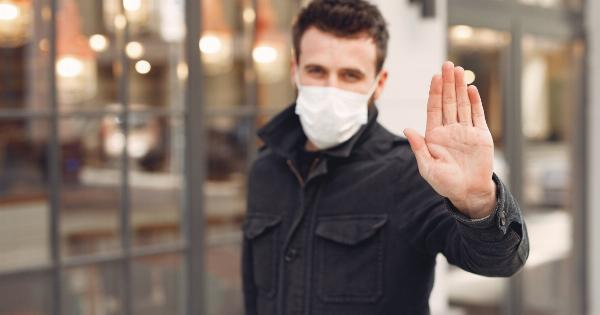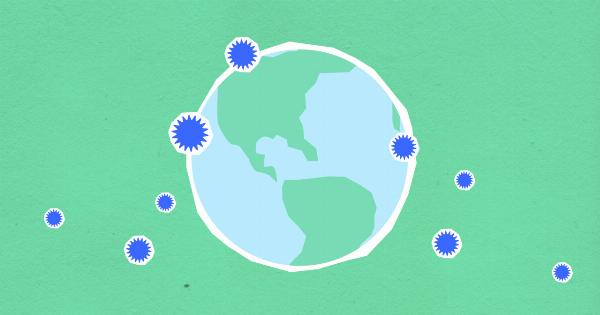The AIDS epidemic has been one of the greatest challenges in global health over the past few decades. While significant progress has been made in reducing new HIV infections and providing treatment to those living with HIV, the battle is far from over.
Ending AIDS requires responsibility and cooperation from various stakeholders, including individuals, governments, and non-governmental organizations (NGOs).
The Role of Individuals
Every individual has a crucial role to play in the fight against AIDS. It begins with taking personal responsibility for one’s sexual health and well-being.
This includes practicing safe sex, getting regularly tested for HIV, and seeking treatment if diagnosed with the virus. By being aware and educated about HIV prevention methods and supporting those living with HIV, individuals can contribute to reducing the transmission of the virus.
Additionally, individuals can support advocacy efforts to promote HIV awareness and destigmatization.
By challenging misconceptions and discrimination associated with HIV/AIDS, individuals can create a more supportive and inclusive environment for those affected by the disease. This requires educating oneself and others about the realities of HIV/AIDS, sharing personal stories, and joining community-based initiatives aimed at addressing the social and psychological impact of the epidemic.
Government Responsibility and Action
Governments play a critical role in the fight against AIDS. They have the authority and resources to implement and enforce policies that can effectively address the epidemic.
This includes allocating funding for HIV prevention and treatment programs, ensuring access to healthcare services, and implementing evidence-based strategies to reduce new infections.
Good governance requires governments to invest in comprehensive sex education in schools, promote condom distribution programs, and provide access to pre-exposure prophylaxis (PrEP) and post-exposure prophylaxis (PEP).
Moreover, governments must work towards ending the stigmatization and discrimination faced by key populations disproportionately affected by HIV, such as men who have sex with men, sex workers, and people who inject drugs.
NGOs and their Contribution
Non-governmental organizations (NGOs) are at the forefront of the AIDS response, providing crucial support and services to communities affected by the epidemic.
NGOs often have the flexibility and expertise to implement innovative and targeted interventions that cater to specific populations and regions. They work closely with individuals, communities, and governments to amplify efforts towards ending AIDS.
NGOs play a vital role in advocacy, raising awareness, and mobilizing resources for HIV prevention, testing, and treatment programs. They provide essential support services such as counseling, outreach, and care for those living with HIV.
Furthermore, NGOs work towards addressing structural barriers that hinder progress in the fight against HIV/AIDS, such as poverty, gender inequality, and lack of access to healthcare.
The Importance of Cooperation
Collaboration and cooperation among individuals, governments, and NGOs are paramount to effectively address the AIDS epidemic. No single entity can achieve this goal alone.
By working together, stakeholders can combine their strengths, expertise, and resources to create a unified response that leaves no one behind.
Cooperation allows for the sharing of best practices, knowledge, and experiences across different contexts. It enables individuals, governments, and NGOs to learn from one another and adapt successful strategies to their own communities.
By fostering a culture of cooperation, stakeholders can streamline efforts, minimize duplication, and maximize the impact of interventions.
Challenges and Solutions
While collaboration is essential, it is not without challenges. One of the primary obstacles in working together to end AIDS is the lack of coordination and communication between stakeholders.
Siloed approaches and fragmented efforts can hinder progress and limit the efficiency of interventions.
To overcome these challenges, regular dialogues and platform for collaboration need to be established. Governments can facilitate partnerships between NGOs, researchers, healthcare providers, and affected communities.
Additionally, investment in data collection, monitoring, and evaluation is crucial to track progress and identify gaps in the response.
Global Commitments and the Way Forward
Ending AIDS requires a global commitment to the cause. Various international agreements and initiatives have been established to guide efforts and ensure accountability.
The United Nations 90-90-90 targets, for example, aim to diagnose 90% of all people living with HIV, provide antiretroviral therapy to 90% of those diagnosed, and achieve viral suppression for 90% of those on treatment by 2020.
To move forward, stakeholders must renew their commitment to these goals and set new targets to sustain progress. Governments should prioritize health in their development agendas and allocate sufficient funding to combat HIV/AIDS.
Individuals must continue to advocate for their rights and demand accessible and affordable HIV prevention and treatment services. NGOs need continued support to carry out their vital work on the ground, addressing the unique needs of different communities.
Conclusion
Ending the AIDS epidemic is an ambitious but achievable goal. It requires a collective effort from individuals, governments, and NGOs. Individuals must take responsibility for their own sexual health and actively engage in prevention and support efforts.
Governments must prioritize HIV/AIDS on their agendas, implement evidence-based policies, and ensure access to healthcare services. NGOs play a critical role in mobilizing resources, providing support services, and advocating for vulnerable communities. By working together and embracing cooperation, we can create a future without AIDS, where no one is left behind.































